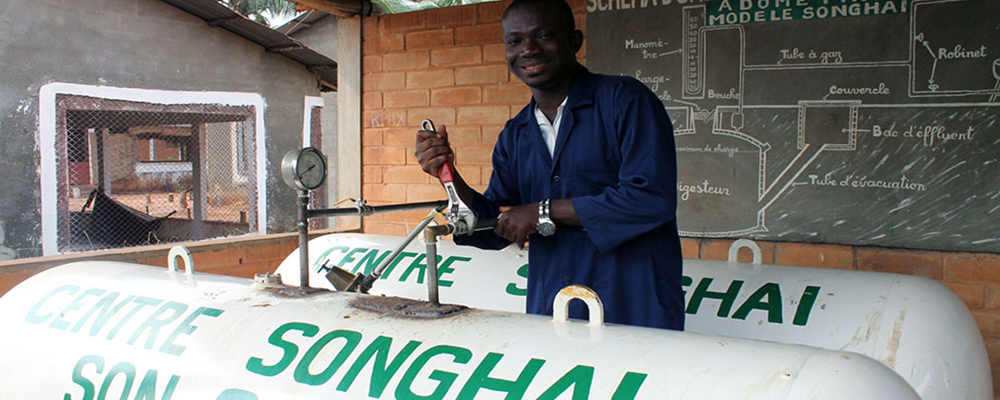[divider style=”double_line_light”]
Access to plant and animal wastes and the rich environmental assets of Africa produces an extraordinary result: abundant organic energy. This form of energy offers our rural areas access to a broad-based and inclusive development. We have embraced this situation from the beginning of the creation of the Songhai Centre. As a result, we have taken on many initiatives that all visitors cannot help but admire.
From animal waste and plant residues, we are able to produce domestic biogas that we use to help prepare the meals in the kitchen for of our trainees. This helps us not only reduce costs, but also contributes to the fight against deforestation. Cutting down trees and other plant species for firewood and charcoal not only contributes to deforestation and its adverse environmental effects, the smoke from using this fuel source also plays an important role in climate change. Today, our proven experience in the field of biogas is sought by both institutions and individuals for the installation of domestic biogas units especially in rural areas.
But we do not limit our actions to biogas production. We also invest in other forms of renewable energy. An example is our gasifier, which helps us to get gas, power, and heat from biomass – residual collected after pruning trees, rice husks, palm kernel cake, etc. Photovoltaic (solar) energy is also one of our priorities and one can observe solar panels around our production areas. With the energy we get from this source, we pump water to irrigate our crops in our garden and provide light in our layer pens, as well as several roads in our farm. Since we are not too advanced in the field of wind energy, there are reasons to boost our biofuel production. From the jatropha we grow, we produce biofuel for powering small engines on some of our agricultural machinery.
Our ambitions in the energy sector are large. Soon our “Songhai energy project” will reach its active phase and we will be producing power not only for us, but also for other communities – especially those in rural areas. This will help reduce the rural exodus and the worsening “slumification” of our urban areas, and have a positive impact on development. Where there is will, there is a way.
]]>


